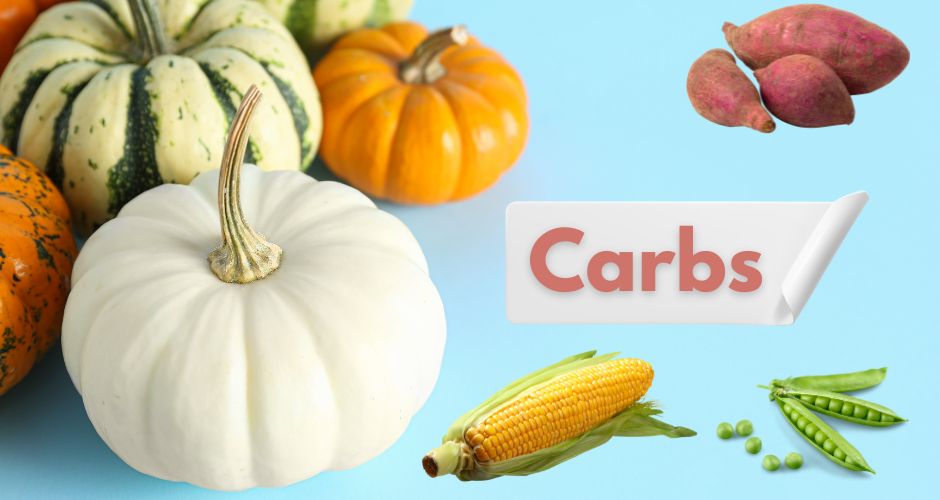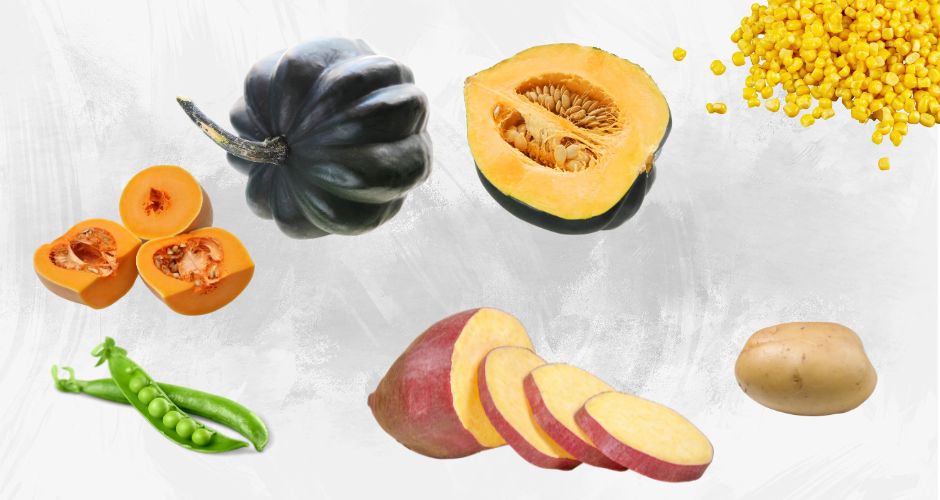Role of High-Carb Vegetables in Your Diet

Vegetables are a crucial component of a healthy diet, providing essential nutrients, fiber, and antioxidants. However, not all vegetables are created equal when it comes to their carbohydrate content.
While some vegetables are low in carbs and ideal for those following a ketogenic or low-carb diet, others are higher in carbs and may be viewed with caution by individuals trying to manage their carb intake. In this blog, we’ll explore the role of high-carb vegetables in your diet and discuss whether they can still be part of a balanced eating plan.
What are High-carb vegetables?
High-carb vegetables are those that contain a higher proportion of carbohydrates compared to other vegetables. These vegetables typically have a higher glycemic index, meaning they can cause a more significant increase in blood sugar levels when consumed. Some examples of high-carb vegetables include:
Vegetables that are filled with carbs
High-carb vegetables contain a relatively higher amount of carbohydrates than other types of vegetables. These vegetables tend to have a higher glycemic index, meaning they can cause a more significant blood sugar drop when consumed. Here are some examples of high-carb vegetables, along with an explanation of their carbohydrate content and impact on blood sugar:
- Potatoes: Potatoes, including white and sweet varieties, are among the most well-known high-carb vegetables. They are rich in starch, a complex carbohydrate that breaks down into sugar during digestion. As a result, potatoes can cause a rapid increase in blood sugar levels when eaten, especially if they are prepared in ways that increase their glycemic index, such as frying or mashing. A medium-sized potato contains around 37 grams of carbohydrates.
- Sweet potatoes: Similar to regular potatoes, they are also high in carbohydrates but are often considered healthier due to their higher fiber and nutrient content. However, they still contain a significant amount of starch and can similarly impact blood sugar levels when consumed in large quantities. A medium-sized sweet potato contains approximately 24 grams of carbohydrates.
- Corn: Corn is another high-carb vegetable commonly consumed in various forms, including fresh, frozen, or canned. While it contains some fiber and nutrients, corn is relatively high in carbohydrates, particularly in starch. Eating corn can rapidly increase blood sugar levels, especially when consumed in processed forms like corn syrup or cornstarch. One cup of corn contains around 41 grams of carbohydrates.
- Peas: Peas are legumes higher in carbohydrates than other non-starchy vegetables. While they contain some fiber and protein, peas are still relatively high in carbohydrates, especially when eaten in larger quantities. As a result, they can cause a moderate increase in blood sugar levels when consumed. One cup of peas contains approximately 21 grams of carbohydrates.

- Winter squash: Winter squash varieties like butternut squash, acorn squash, and pumpkin are higher in carbohydrates than summer squash varieties like zucchini and yellow squash. While winter squash does provide some fiber and nutrients, it also contains a significant amount of starch, which can contribute to a rise in blood sugar levels when consumed. One cup of cooked winter squash contains around 16 grams of carbohydrates.
- Beets: Beets are root vegetables that are relatively high in carbohydrates compared to other non-starchy vegetables. They contain natural sugars that can contribute to an increase in blood sugar levels when consumed. One cup of cooked beets contains approximately 13 grams of carbohydrates.
Benefits of High-carb Vegetables
While high-carb vegetables may have a higher carbohydrate content
than other vegetables, they still offer several health benefits when included in a balanced diet. Some of the benefits of high-carb vegetables include:
1. Nutrient density: High-carb vegetables are rich in essential vitamins, minerals, and antioxidants, which are necessary for overall health and well-being. They provide valuable nutrients such as vitamin A, vitamin C, potassium, and folate.
2. Fiber content: Many high-carb vegetables are excellent sources of dietary fiber, which is essential for digestive health and regular bowel movements. Fiber can also help promote feelings of fullness and satiety, which may aid in weight management and appetite control.
3. Energy source: Carbohydrates are the body’s primary energy source, and high-carb vegetables can provide a steady fuel source for physical activity and daily tasks. Consuming high-carb vegetables as part of a balanced meal can help replenish glycogen stores and provide sustained energy throughout the day.
4. Heart health: Some high-carb vegetables, such as sweet potatoes and winter squash, are rich in potassium and are crucial in regulating blood pressure and heart function. Including these vegetables in your diet may help support heart health and reduce the risk of cardiovascular disease.
5. Antioxidant properties: High-carb vegetables are often packed with antioxidants, which help protect the body against oxidative stress and inflammation. These antioxidants can help reduce the risk of chronic diseases such as cancer, diabetes, and heart disease.
High-carb vegetables can be a nutritious and beneficial addition to a balanced diet when consumed in moderation. By incorporating a variety of vegetables into your meals, you can reap the health benefits while managing your carbohydrate intake effectively.
Recommended – Nutritional Benefits of Squash






